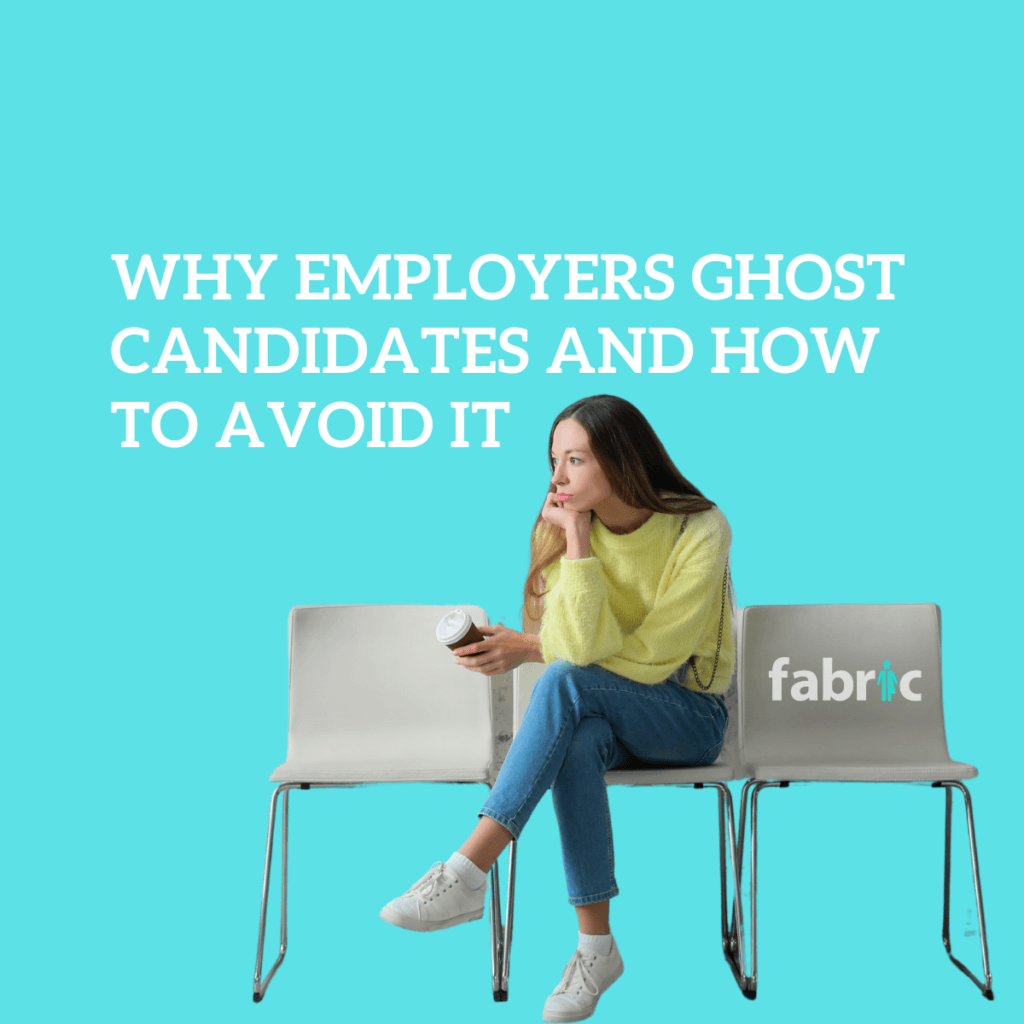 Why employers ghost candidates and how to avoid it
Why employers ghost candidates and how to avoid it
If you are like many job seekers, you are likely staring down a screen of open jobs on LinkedIn, Indeed, or any other job board, aimlessly applying to every job that aligns with your skills and interests.
You’ve likely already applied to hundreds of jobs without so much as a screening call.
So, what do you do?
Understanding why employers ghost candidates
Ghosting has unfortunately become commonplace in the hiring process and is one of the biggest pain points for job seekers in today’s labor market.
Job “ghosting” is the practice of suddenly ceasing all communication with a candidate, hoping that the applicant will “get the hint” that they are no longer being considered for the position, as opposed to the human resources professional or hiring manager simply telling them they’re out of the running.
Too many people submit their resume to an employer, interview, and then nothing. Just a deafening silence from the hiring team’s side. Other candidates won’t even get a screening call or personalized response. No returned calls, texts, emails, and LinkedIn messages.
Common Reasons for Employer Ghosting
- Overwhelmed Recruiters: With the proliferation of online job boards and the easy-apply button, recruiters and employers get inundated with applications. The sheer volume of applicants can make it difficult for them to keep up with personalized responses.
- Internal Changes: Employers sometimes ghost candidates if they have locked in on a new hire for the position, went with an internal employee, or altered priorities due to internal changes, financial roadblocks, or the deployment of artificial intelligence.
- Fear of Negative Feedback: Some recruiters and hiring managers find it challenging to deliver rejection or provide negative feedback to candidates. They are uncomfortable or afraid to tell the applicant that they won’t be moving forward with them. It’s easier for them to hide behind technology and hope that the applicant just goes away without making a big fuss.
- Company Culture: Ghosting can be a sign that the organization demonstrates unethical hiring practices or has a toxic company culture with a lack of respect for its workers. Sometimes, you better off getting ghosted than employed by companies like this.
How to Avoid Being Ghosted
- Follow Up After Application: Don’t just hit “apply” and wait. Proactively send LinkedIn connection invites to the recruiters and hiring managers at the company. Reach out to them to initiate a conversation and express your interest in the role. Use personalized messages to show that you have researched the company and explain why you’re a good fit for the position. Do not stop reaching out or finding ways to connect with decision-makers until you actually get a response.
- Ask About Next Steps: Understanding the company’s sense of urgency about filling an open position and timing is critical to following up in a timely manner and prioritizing the opportunities in your personal pipeline. After every interaction, ask a sequence of questions like:
- What is the next step in the process?
- When will I hear back?
- What is your timeframe for bringing someone on board?
- Follow-up Again: After an interview, send a thank you note expressing your interest, reinforcing your fit with the role and the company, and confirming that you look forward to hearing about the next steps by the promised date or timeline. If you don’t hear back, check in at the end of the timeline and then weekly about three to four times before assuming you’ve been ghosted. Be friendly, assertive, and persistent.
- Become a Referred Candidate: Employers are less likely to ghost a referred candidate for fear of alienating the employee who made the referral. If you can’t score a referral, try to connect with current employees of the companies you want to work for. Insiders may know about internal candidates, budget constraints, or business issues that can affect your chances of getting hired or being ghosted.
How to Respond if You’re Ghosted
- Don’t Take It Personally: Being ghosted is not a reflection of your ability to succeed. You’re not at fault for somebody else’s poor behavior or their lack of mature adult communication skills.
- Keep Your Momentum: Never stop your job search until you receive a written offer. Cut your losses, focus on better opportunities, and continue to apply to other jobs.
- Stay Positive: If you interview at another company feeling angry, resentful, and carrying baggage from your previous ghosting and rejection, the hiring manager will notice. Employers want to hire people who are happy, upbeat, likable, and motivated.
Conclusion
Ghosting is an unfortunate growing reality in today’s job market, but understanding the reasons behind it and taking proactive steps can help you navigate the job search process more effectively. Remember, staying resilient and maintaining a positive outlook can make all the difference in landing your next opportunity.
At Fabric Staffing, we are committed to helping organizations unlock their full potential through innovative talent solutions. Contact us to learn more about how we can support your talent acquisition and development needs.
The post Why employers ghost candidates and how to avoid it first appeared on Fabric Staffing | The best tech recruiting agency.
